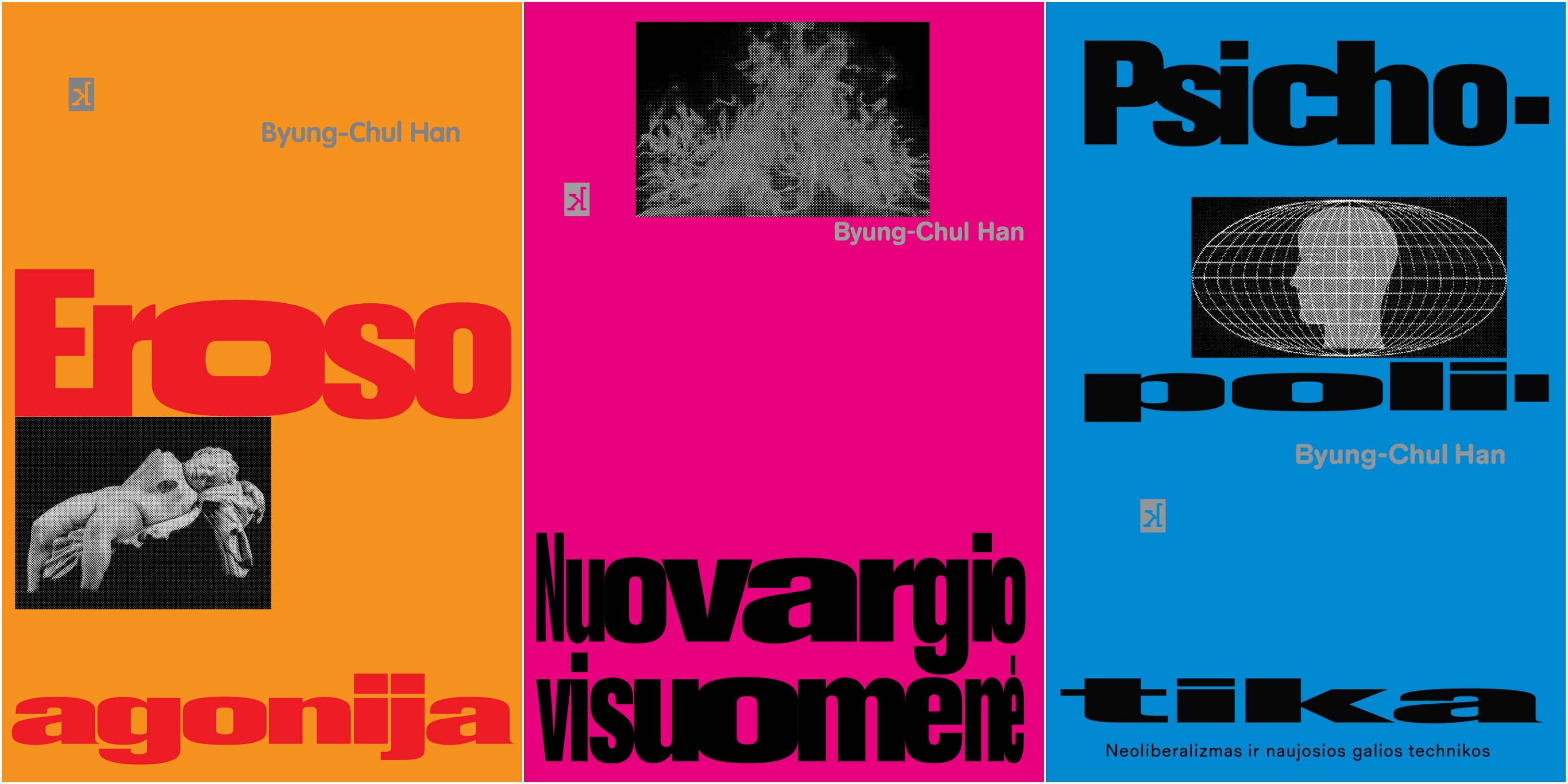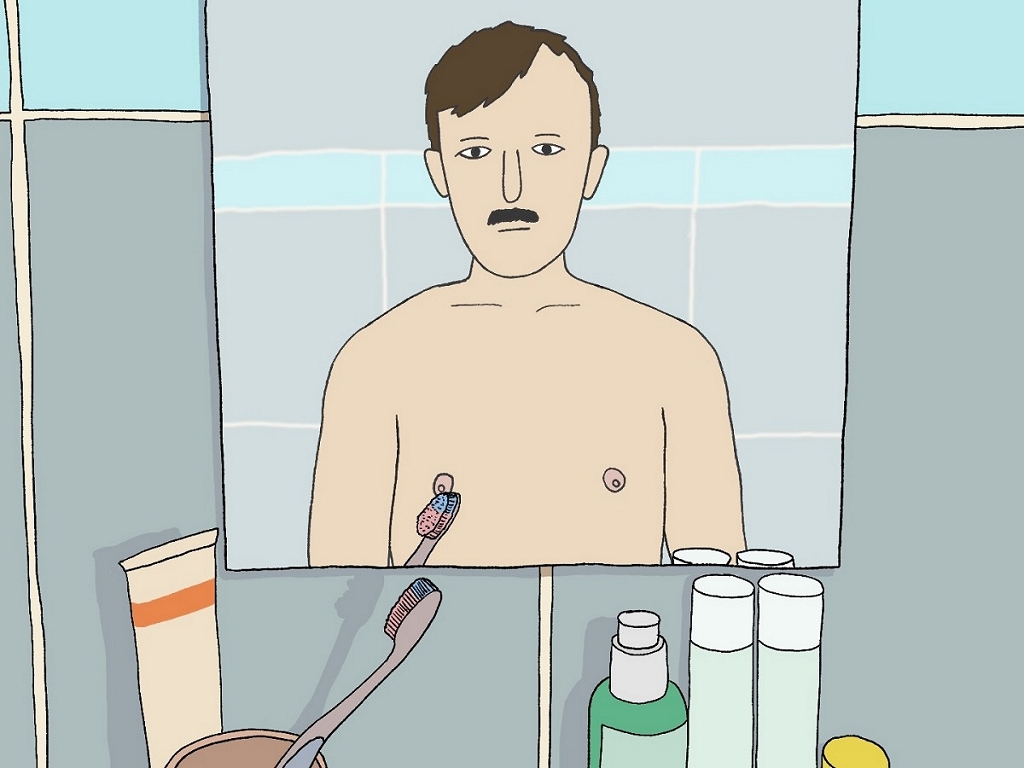Why are we experiencing a love crisis?

According to Byung-Chul Hano, modern society is experiencing a love crisis, otherwise Eros agony. This is reflected in different areas of life, because love is not only the engine of personal life, relationships, but also creativity, thinking, politics. Without the era, our activity loses its spirit and vitality, turning into « simple sensual ».
What determines the love crisis of Western society and how can it be overcome? About this – a conversation with the philosopher prof. T. Sodeika. The German professor has already translated three books of Byung-Chul Han-not only « Eros's agony » but also the « tired society » criticizing the modern achievement society; Readers will soon be reached by « psychopolitics ».
According to T. Sodeika, Byung-Chul Han's book creates a seamless picture, so read them best polyphonically-all three at once.
– Would you agree that Byung Chul Han is like a philosophical diagnosis of disease in modern society, capable of explaining complex things in a understandable language?
– I think the title of philosophical diagnosis would be really good for him. However, any diagnosis is not an end in itself. It is only needed to give it proper therapy. When reading the texts of Byung-Chul Han, I often miss the therapeutic references that are more clearly formulated. As a result, when I write the words of « fatigue to society », « Eros agony » and « psychopolitics », I tried to raise the diagnoses of the author to the light of daylight implicit hints of the respective prospects of therapy. Of course, this is no longer the author's position, but my interpretation. Perhaps another reader of Byung-Chul Han would explore those clues differently.
Be that as it may, the diagnosis of the state of Western culture by Byung-Chul Han is quite unambiguous. According to him, modern Western culture is characterized by a kind of hypertrophy of positivity. After all, we tend to treat any manifestation of negativity as an illness that needs to be removed. Byung-chul Han tries to show that this approach is not only false but also flawed. Because trying to get rid of everything that is negative, we enter a deadlock that is difficult to escape. According to Byung-Chul Hano, we should recognize a kind of paradox-negativity can be positive.
Topic: The thinker from South Korea is critical of today's Western society in his books, entangled in the trap of technology, hyperactivity and fake feelings. / Photo by organizers
-What is that positive negativity that we need, according to Byung-Chul Hano,?
-In his different books, Byung-Chul Han recognizes him in different social phenomena. For example, « fatigue in society » appears as fatigue. We are used to treating fatigue as a negative state that hinders us to achieve positive results. But Byung-Chul Han shows that fatigue can open us access to contemplative posture, which modern Western culture has almost completely lost. He detects negativity in Eros Agony in love itself. The nature of the love relationship with another person degenerates and acquires a pathological form precisely because in that relationship the positivity that forms the basis of « soul communion » is dominated. According to Byung-Chul Hano, this attitude contradicts the very nature of love. He points out that when we are fascinated by this form of love, we do not notice that we love you no longer but ourselves. True love must be attended by a moment of negativity that prevents me confusion with myself.
We are used to treating fatigue as a negative state that hinders us to achieve positive results.
-Here you want to remember the phrase of Byung-chul Han: “It is impossible to love another if it is deprived of it; It can only be used. ”
– Indeed, the romantic name of love as « the communion of souls » means the use of another person, not love. It looks like what happens while eating: we consume food by turning it into a part of our body, ie, eliminating its variety.
-According to Byung-Chul Han, other areas of life also suffer from the lack of love for the lack of love. It is about culture, art and even thinking – there can be no thinking without the era.
– It is the moment of negativity in love that determines the difference between what is unconditionally significant to us and what is not significant. This difference is the basis of culture as a specific human reality that gives our lives the basic landmarks. In the modern Western culture of the love crisis, the difference is rapidly disappearing. So the modern man loses its foundational landmarks. In this respect, the crisis of love, or Eros's agony, is essentially a crisis of all cultures as human reality. Art is increasingly pushed out by the entertainment industry, thinking – calculation, and the place of love is occupied by pornography.
– How do you revive that era and prevent it from disappearing?
-Byung-chul Han, the « Eros Agony », mentions that we could discover a kind of medicine first to realize the limitations of our powers. Such awareness is a daunting task because we live in a « society » where we are encouraged to believe that we can. Usually, we try to overcome the negativity in the word « I can't » in some obstacles. We are looking for a positive problem solving. In the diagnosis of modern Western culture presented by Byung-Chul Hano, the hint of therapy pays our attention faster in the opposite direction: we should survive our inability as a positive moment, as « being able to be unable ». It happens when I accept love not as what I get as a reward for my merits, but precisely as a gift. After all, the gift is what I can't care for myself. Eros's agony can be overcome on a condition that we find the strength to be able to be unable to be able to.
After all, the gift is what I can't care for myself. Eros's agony can be overcome on a condition that we find the strength to be able to be unable to be able to.
– Sounds hopeful. You have translated the third book « Psychopolitics » of Byung-Chul Han, which will soon appear in Lithuanian. Does it supplement or extend the topics already discussed?
– It can be said that in « psychopolitics » some insights are explicated in more detail both in both « fatigue in society » and « Eros's agony ». The focus is on the role of digital technologies in the formation of the prevailing attitude of neoliberalism in the era of neoliberalism – the unconditional childhood childhood, motivated by the external violence, but by allegedly free self -determination. Byung-chul Han shows that freedom itself turns into nothing else but a form of self-exploiting. The decisive importance here is that digital technology forms media where a person becomes a self -exploiter while living. It is shown how those media turn personal life into a product and how, in order to seek unconditional self -confirmation, individuals create feedback – self -promotion and self -optimization.
All three of my translated Byung-Chul Han's book are well extended and complementary. If someone asked my advice on how to read them, I would suggest doing it polyphonically – all three to read at a time.








:format(webp)/s3/static.nrc.nl/images/gn4/stripped/data133314127-765aec.jpg)